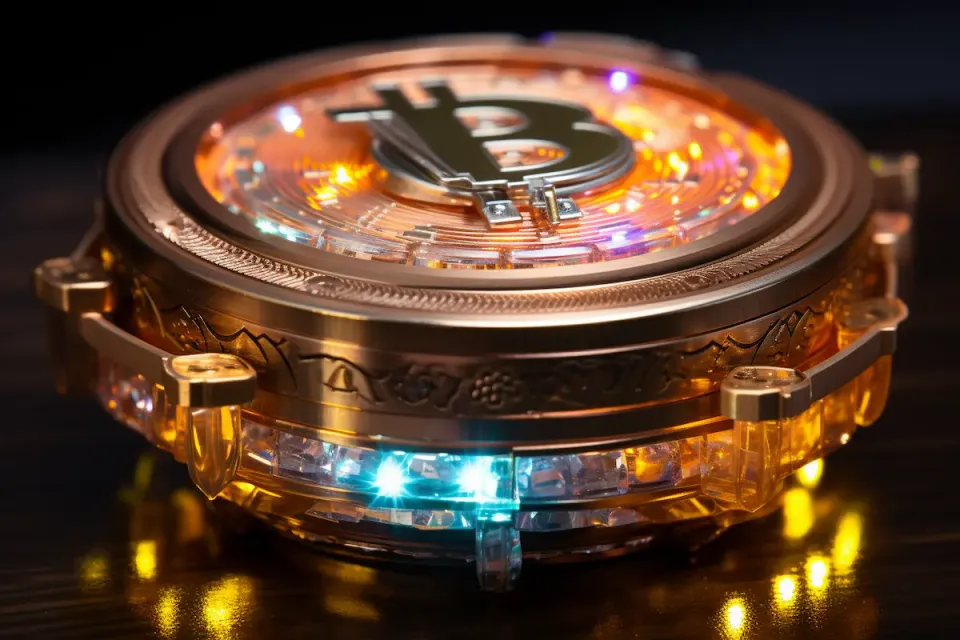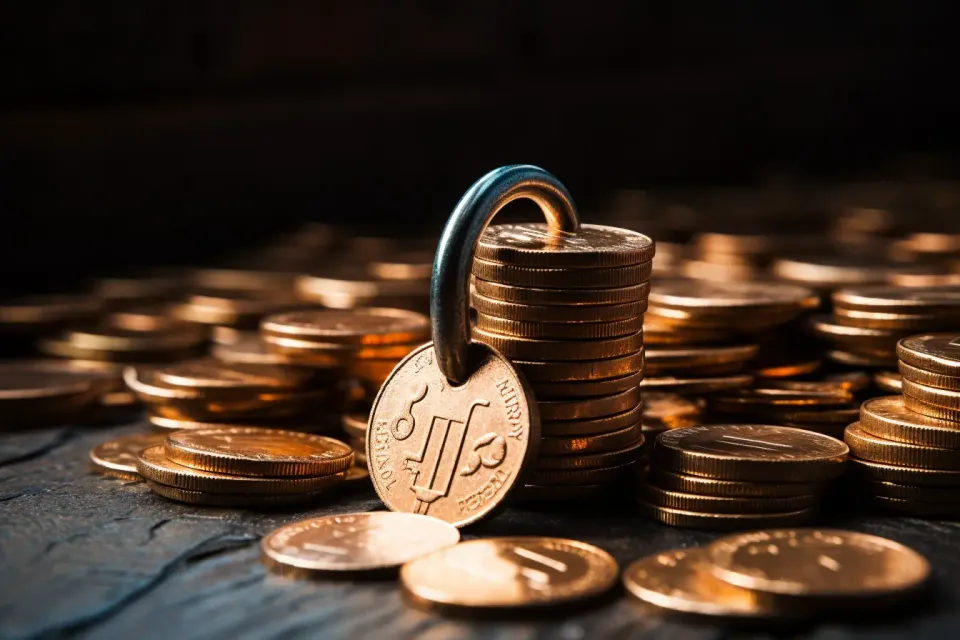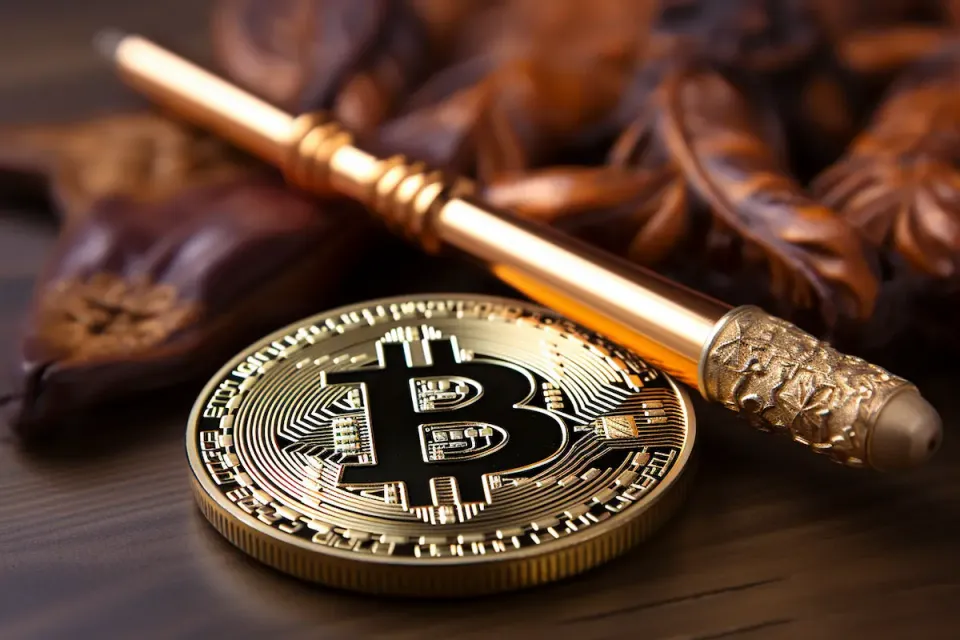Token Warrant: How To Use Them
An increasing number of web3 startups are adopting new methods to distribute equity to investors through their native tokens. Prominent among these new methods is token warrant. Understanding the use of token warrants is crucial for investors, considering the rise of cryptocurrency and web3. This guide aims to demystify the concept and practical applications of token warrants, offering insights into their operation, benefits, and challenges.
What Is A Token Warrant?
A token warrant is a specialized financial instrument in the world of cryptocurrency. These instruments draw parallel to traditional stock warrants found in conventional financial markets.
So, what is a warrant agreement in traditional finance? In the stock market, a warrant is a document that entitles the holder to purchase a company's stock at a specific price before a predetermined expiration date. You can think of a warrant as a long-term option. Similarly, in the crypto context, a token warrant grants the holder the right to acquire a certain number of digital tokens at a pre-agreed price before a set deadline.

It’s worth noting that token warrants are not for established cryptocurrencies like Bitcoin. Being a decentralized cryptocurrency, BTC doesn't have a central issuing authority or company that can issue warrants for its tokens. It operates independently of any single entity, and its tokens (bitcoins) are not issued or controlled by any corporate entity that could issue warrants.
In the case of blockchain startups or web3 projects, token warrants would be applicable to the specific tokens created and issued by these projects. These warrants are a way for investors to potentially invest in the future value of a project's native token and support the project itself.
Token Warrants and Crypto Fundraising
Token warrants are primarily used as tools for investment and fundraising in the crypto space. For blockchain projects and startups, offering token warrants can be an effective way to raise funds. It allows them to secure investment by selling the rights to purchase tokens at a later date, often at a favorable price. Thus, this can be an attractive proposition for both parties: investors get the opportunity to buy tokens at a potentially lower price, and projects receive funding to develop their platform or technology.
What Are Token Warrants or Warrants in Cryptocurrency?
Token warrants in the realm of cryptocurrency are comparable to options in traditional stock markets. These are essentially agreements that confer upon investors the right, but not the obligation, to purchase a specified amount of cryptocurrency tokens at an agreed-upon price at a future date.
The concept of a token warrant is rooted in the idea of providing investors with a level of security and potential for profit in the highly speculative cryptocurrency market. By locking in a purchase price today, investors can potentially benefit from future increases in the value of the token, without the immediate need to invest a significant amount of capital. This can be especially appealing in a market known for its rapid and sometimes dramatic price fluctuations.
As stated earlier, for blockchain projects and startups, token warrants serve as an effective fundraising tool. They allow these ventures to raise capital by selling the rights to purchase tokens at a later date, often at a price that is attractive to early investors. This approach not only provides projects with the necessary funds to develop their technology or platform but also creates a vested interest among investors in the success of the project.
How Do Token Warrants Work?
The functioning of token warrants is deeply intertwined with the principles of tokenomics and the broader cryptocurrency market dynamics. They are designed to offer investors a stake in the future of a crypto project, balancing risk and potential reward.
What Is Token Warrant Role in Tokenomics
Tokenomics, a term that combines “token” and “economics”, is fundamental to the functioning of token warrants in the cryptocurrency sector. It refers to the study and strategic implementation of various factors that influence the supply, demand, and value of tokens within a blockchain ecosystem. Token warrants are integral to this ecosystem, as they significantly impact these dynamics.

The role of token warrants in tokenomics is multifaceted.
- Firstly, they can be used to manage the supply of tokens. By offering warrants, a project can control how many tokens are in circulation at any given time. This is crucial because the availability of tokens directly affects their value – generally, the scarcer the token, the higher its potential value.
- Secondly, token warrants influence investor behavior. By providing the option to purchase tokens at a predetermined price in the future, warrants can encourage early investment in a project. This early investment is often critical for the development and success of new blockchain projects. It also creates a sense of confidence and commitment among investors, as they have a stake in the project's future success.
- Moreover, token warrants can impact the demand for tokens. They create an additional layer of interest in the token, as investors who hold warrants are likely to follow the project's progress closely. This increased interest can lead to higher demand for the tokens once they are available, potentially driving up their value.
In the broader context of a blockchain project's economy, token warrants serve as a tool for balancing and stimulating growth. They provide a mechanism for projects to raise funds, control token circulation, and build a committed investor base. This strategic use of token warrants within tokenomics is essential for the long-term viability and success of blockchain projects.
Token Warrants and SAFTs
Token warrants and Simple Agreements for Future Tokens (SAFTs) are frequently used together in the cryptocurrency fundraising landscape, each serving a distinct but complementary role.
SAFTs are contracts used by crypto projects to raise funds, typically from accredited investors. They promise the delivery of tokens at a future date. Usually it is the date when the project's platform or service is live or when the tokens become publicly tradable. This approach is particularly popular for projects that are in their developmental stages and are not yet ready to issue their tokens.
While SAFTs focus on the promise of future tokens, token warrants offer the right to purchase tokens at a predetermined price within a specific timeframe. This added layer of flexibility is beneficial for both investors and project developers. Investors receive an option to buy tokens at a potentially favorable price, taking a chance to capitalize on the future success of the project.
The combination of SAFTs and token warrants provides a more robust and versatile fundraising mechanism in the crypto space. SAFTs provide a straightforward path for investing in a project's future tokens, while token warrants offer a more flexible and potentially lucrative investment opportunity.
Types of Token Warrants
Token warrants in the cryptocurrency market primarily come in two forms: call warrants and put warrants. Each type serves different purposes and suits various investment strategies.
- Call warrants. A call warrant gives the holder the right to purchase a certain amount of cryptocurrency tokens at a specified price before the warrant expires. This type is particularly attractive in a bullish market, where the investor anticipates that the token's price will rise above the strike price before the expiration date. If this happens, the investor can exercise the warrant to buy the tokens at the lower strike price and potentially sell them at a higher market price, thus realizing a profit.

- Put warrants. Conversely, a put warrant allows the holder to sell tokens at a predetermined price before the warrant expires. This type is more appealing in a bearish market, where the token's price is expected to fall below the strike price. By exercising a put warrant, an investor can sell tokens at a higher price than the market offers, which can be a way to hedge against falling token values or to make a profit in a falling market.

Call warrants are generally used when there is confidence in the project's future success. On the other hand, put warrants can be a strategic tool in more uncertain or declining market conditions.
Pros & Cons of Token Warrants
Token warrants, like any financial instrument, come with their own set of advantages and disadvantages.
Pros:
- Flexibility. Token warrants offer investors flexibility in terms of investment decisions. Investors can choose to exercise their warrants if it's beneficial, or let them expire if the market conditions are not favorable.
- Leverage. Warrants provide a way to gain exposure to the underlying token without the need for a significant upfront investment. This leverage can amplify returns if the token's price moves favorably.
- Risk Management. Particularly with put warrants, investors have a tool to manage risk in a volatile market. They can secure a sale price, which can be a form of protection against declining token values.
Cons:
- Market Volatility. The cryptocurrency market is known for its high volatility. This can make warrant investments risky, as the value of the underlying token can fluctuate wildly.
- Complexity. Understanding token warrants requires a good grasp of both the underlying token and the specific terms of the warrant. This complexity can be a barrier for some investors.
- Regulatory Uncertainties. The regulatory environment for cryptocurrencies and related financial instruments is still evolving. Changes in regulations can impact the value and legality of token warrants.
When Is the Token Warrant Signed?
The signing of a token warrant agreement typically occurs during a pivotal phase in a crypto project's fundraising efforts. This moment is significant as it formalizes the agreement between the project and its investors regarding the future acquisition of tokens.
The exact timing for signing a token warrant agreement can vary depending on the project's stage and its fundraising strategy. It often coincides with key fundraising rounds, such as seed or Series A funding, when a project is seeking to secure capital for development and expansion.
SAFT vs SAFE vs Token Warrants
Token warrants share some similarities with other finanical instruments, like Simple Agreements for Future Tokens (SAFTs), or Simple Agreements for Future Equity (SAFEs).
We will provide a brief overview of each instrument to highlight the key differences between the three.
SAFTs
A SAFT is a contract used by cryptocurrency developers to raise funds from accredited investors. It promises the delivery of tokens at a future date, typically when the project launches or the tokens become publicly tradable. SAFTs are primarily used in the early stages of a project, allowing investors to buy tokens at a lower price before they hit the market. This method is particularly useful for projects that are not yet ready to issue their tokens but need funding for development.
SAFEs
Unlike SAFTs, SAFEs are not specific to the cryptocurrency industry. They are a contract between two parties in which an investor purchases the right for future equity in a company. The equity often comes in the form of stock or tokens. In exchange, the start-up issuing the contract receives immediate funding.
SAFEs are used by startups outside of the blockchain space as well, and are favored for their simplicity and lower legal costs. One of the key features of this instrument is that it has no maturity date. Instead, they convert into equity under certain triggering events like the next round of financing or a sale of the company.
Token Warrants
Similarly to SAFT, warrant agreements in crypto industry give investors the right to acquire tokens at a fixed price. Unlike SAFTs, which focus on the future delivery of tokens, token warrants offer more flexibility. They allow investors to decide whether to purchase the tokens based on market conditions at the time of exercise or not.
Each of these instruments has its own merits and is suitable for different scenarios in the digital asset space. SAFTs are ideal for early-stage blockchain projects, SAFEs are more versatile and can be used by a variety of startups, and token warrants offer flexibility and potential for high returns in a volatile market.
Token Side Letter/Token Warrant for Fundraising
In fundraising, a token side letter or token warrant is often employed to set specific terms related to crypto assets. This approach is more focused and detailed compared to the broader frameworks of SAFTs and SAFEs. A token side letter typically accompanies a primary investment agreement. It provides additional details or conditions specific to the token aspect of the deal. For instance, it might outline terms such as pricing, quantity, vesting schedules, and other conditions related to the tokens that are not covered in the main agreement.
Token Warrants with SAFE
Integrating token warrants with SAFE agreements can create a comprehensive fundraising solution, especially for startups operating in the blockchain space. This combination allows startups to leverage both equity and token-based funding. Thus, the investment opportunity becomes more appealing to a broader range of investors.
In this arrangement, a SAFE might be used to provide immediate funding to the startup in exchange for future equity or tokens. At the same time, token warrants can be issued to give investors the right to purchase additional tokens at a set price in the future. This dual approach allows startups to secure necessary funding while offering investors various options to participate in the project's potential growth. It also provides a balance between immediate funding needs and long-term investment opportunities.
How to Use Token Warrants for Fundraising
Effectively utilizing token warrants in fundraising is a strategic process that demands careful planning and a deep understanding of both the project's potential and the investment landscape. The key is to balance the interests of the project developers with the expectations and needs of investors. This balance involves determining the right terms for the token warrants, the quantity of tokens available under the warrant, and the expiration date of the warrant.

For project developers, using token warrants in fundraising means offering potential investors an attractive yet realistic opportunity. The terms of the token warrants should be set in a way that incentivizes investment without undervaluing the project's potential. This often involves projecting the future value of the tokens, considering the development roadmap of the project, and understanding the overall dynamics of the cryptocurrency market.
How to Negotiate Equity and Token Valuation?
Negotiating equity and token valuation in a token warrant agreement is a nuanced and complex task. It requires a comprehensive understanding of several key factors:
- Project Valuation: The current and projected valuation of the project plays a crucial role. This involves analyzing the project's business model, market potential, competitive landscape, and growth projections. A realistic and well-supported valuation can form a strong basis for negotiation.
- Market Dynamics: Understanding the broader crypto market trends also helps to evaluate the tokens. It includes factors like market sentiment, regulatory changes, and technological advancements in the blockchain space.
- Tokenomics: The structure and distribution of the tokens can influence the token’s supply and demand. The main variables to be considered include the total supply of tokens, their utility within the project, and how they are expected to appreciate in value.
Overall, it is about finding a middle ground where the interests of both the project developers and the investors align. The goal is to create a mutually beneficial agreement that supports the long-term success of the project while offering a fair and potentially lucrative opportunity for investors.
What Are the Terms of the Token Warrant?
The terms of a token warrant are fundamental in shaping its operational framework and appeal to investors. Key terms include the exercise price, expiration date, conditions for exercise, and the token generation event. Let's examine these terms more closely:
- Exercise Price: The price set at the issuance of the warrant, determining how much the holder can pay to purchase the tokens in the future. It's typically lower than the anticipated future market price, offering an investment incentive.
- Expiration Date: This term specifies when the warrant must be exercised before it becomes void. The length of time until expiration can affect the warrant's value. Longer periods offering more potential for appreciation but also greater exposure to market risks.
- Conditions for Exercise: The criteria to be met for the warrant to be exercisable. A common condition is the “token generation event” (TGE), a significant milestone where tokens are created and become available for trading. Warrants often become exercisable post-TGE, aligning investor interests with the project's progress.
- Vesting Schedule: Some warrants have a vesting schedule that dictates when they can be exercised, controlling the market release of tokens and preventing oversupply.
- Transferability: This term defines whether the warrant can be transferred or sold. Some are non-transferable, while others allow transfer under specific conditions.
- Anti-Dilution Provisions: The protection of the warrant holder from value dilution in case of additional token issuance, ensuring the warrant retains its intended benefits.
Conclusion
Token warrants represent a significant and evolving aspect of cryptocurrency and blockchain fundraising. Their proper understanding and application are key to leveraging the opportunities they present in the dynamic world of digital finance. As the crypto landscape continues to evolve, the role of token warrants is likely to become increasingly prominent and influential.
*This communication is intended as strictly informational, and nothing herein constitutes an offer or a recommendation to buy, sell, or retain any specific product, security or investment, or to utilise or refrain from utilising any particular service. The use of the products and services referred to herein may be subject to certain limitations in specific jurisdictions. This communication does not constitute and shall under no circumstances be deemed to constitute investment advice. This communication is not intended to constitute a public offering of securities within the meaning of any applicable legislation.




